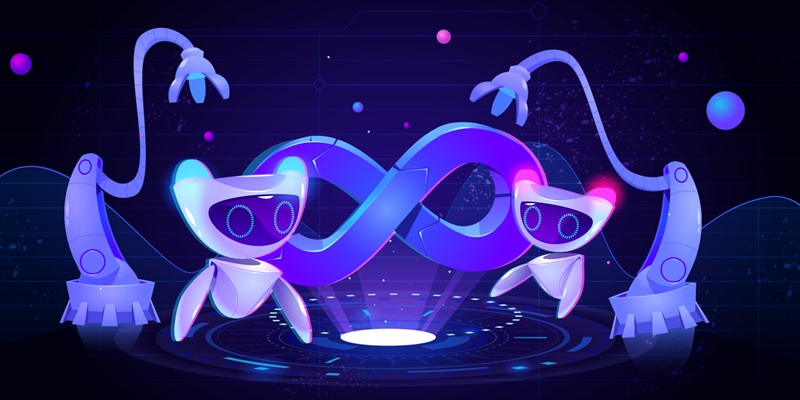In today’s fast-paced software development landscape, integrating AI-based test automation tools with DevOps and Agile methodologies has become crucial to maintaining a seamless and dynamic software development lifecycle. This integration ensures that testing is not a bottleneck but a facilitator of rapid development cycles. By swiftly adapting to changes and updates, these tools can provide immediate feedback to developers, leading to enhanced software quality and faster time-to-market.
Swift Adaptation to Changes
The primary advantage of AI-based test automation tools is their ability to quickly adapt to changes. Traditional testing methods often struggle to keep up with the ever-evolving software landscape. However, AI-driven tools can effortlessly analyze code updates and make necessary adjustments to test cases. This agility allows developers to iterate on their code without causing delays or interruptions in the testing process. Moreover, the immediate feedback and error detection capabilities of AI-based tools significantly reduce the time and effort required for bug fixing.
Testing as a Facilitator
Integrating AI-based test automation tools with DevOps and Agile methodologies ensures that testing becomes an integral part of the software development process rather than a separate and time-consuming phase. By automating repetitive and mundane testing tasks, AI tools free up resources and empower testers to focus on more critical aspects of the software. This approach leads to increased collaboration, a rapid feedback loop, and continuous integration, enhancing overall software quality and reducing time-to-market.
Enhancing the User Experience
User experience (UX) plays a pivotal role in the success of any software application. AI-based test automation tools analyze user behavior patterns and feedback to simulate real-world interactions, allowing developers to accurately assess the software’s usability and performance. By aligning the software with user expectations and preferences, these tools enable developers to address potential issues and refine the UX before the release. As a result, end-users receive a seamless and tailored experience that meets or exceeds their expectations.
Skills needed for AI-based testing
The complexity of AI-based test automation tools necessitates a new set of skills in the software testing community. Testers need to develop competency in areas such as machine learning, natural language processing, data analysis, and statistical modeling. Understanding how to effectively leverage AI algorithms and interpret the results generated by these tools becomes crucial. To bridge the skill gap, organizations and educational institutions are offering specialized training and courses in AI-driven software testing methodologies.
Training and Education Initiatives
Recognizing the importance of preparing the workforce to effectively utilize AI in software testing, numerous organizations and educational institutions have launched training and education initiatives. These programs aim to equip testers with the necessary skills and knowledge to harness the power of AI-based test automation tools. By actively engaging in these initiatives, testers can stay ahead of the curve and contribute fruitfully to their organizations’ software development processes.
Preparing the Workforce
The implementation of AI-based test automation tools requires a comprehensive approach to adequately prepare the workforce. Along with technical knowledge, testers need to develop critical thinking, problem-solving, and communication skills to effectively collaborate with developers and other stakeholders. Organizations should encourage and support their testers in participating in training programs and certifications to ensure they have the required expertise to seamlessly integrate AI-driven testing into the software development lifecycle.
Reshaping the landscape of software testing
The integration of AI-based test automation tools is reshaping the present landscape of software testing. With advancements in machine learning and AI algorithms, these tools have the potential to revolutionize how software is tested, making the process faster, more accurate, and more efficient. As organizations increasingly embrace these technologies, traditional testing methods will gradually be replaced by AI-driven approaches, setting new standards for quality assurance in the software development industry.
Promising outlook for the software development industry
The promising outlook for the software development industry lies in the ability of AI-based test automation tools to deliver software that exceeds expectations. By simulating real-world scenarios, analyzing user behavior, and providing immediate feedback, these tools ensure that software aligns with user expectations, resulting in higher customer satisfaction. Furthermore, the reduced time-to-market, improved software quality, and increased collaboration brought about by the integration of AI and Agile methodologies pave the way for a more efficient and successful software development industry.
The integration of AI-based test automation tools with DevOps and Agile methodologies marks a significant shift in the software testing landscape. This integration not only accelerates the development cycle but also enhances software quality by aligning it with user expectations. As organizations and educational institutions invest in training programs to bridge the skills gap, testers must embrace the opportunities presented by AI-driven testing to remain relevant and contribute to the future of software development. Ultimately, the successful integration of AI-based test automation tools offers a promising outlook for the software development industry, leading to the creation of software that exceeds expectations.

